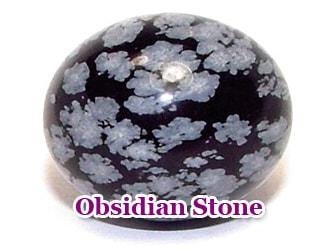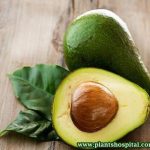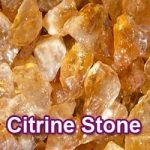Coriander (Coriandrum sativum L.) is a member of the Umbelliferae family of plants (Apiaceae). Coriander’s origins can be traced back to the Mediterranean and Southern Europe. Let us learn some Health Benefits Of Coriander, shall we?
It is one of the world’s oldest spices, used for roughly 7000 years. Coriander leaves, also known as cilantro, are used in curries, many ethnic meals, soups, pickled vegetables, cooked vegetables, bread, and stews.
Coriander’s entire plant is edible, yet each section has a distinct flavor. Coriander seeds have an earthy flavor that is amplified by heat. Coriander seeds can be ground into a paste and added to doughs and preparations, and the leaves are spicy and citrus-like.
Coriander leaves, garlic, peanuts, and lemon juice pureed to produce burritos or salsa dip paste. Coriander leaves are also an excellent garnish for soups, pasta salads, salsa drinks, and Thai cuisine.
Coriander consumption has a variety of health benefits for the entire body. For example, coriander’s potential health benefits are limitless, ranging from decreasing blood sugar to increasing immunity, from hair regeneration to skin cleansing.
- Ayurvedic Health Benefits
- Health
- Hair
- Skin
Table of Contents
Health Benefits of Coriander: Coriander’s Ayurvedic Benefits
Since ancient times, coriander has been a well-known herb throughout the world, from the Mediterranean basin to India and China. Ayurveda uses both dried seeds and fresh leaves for culinary and medicinal purposes.
According to Ayurveda, coriander’s culinary applications have the medical purpose of balancing the food’s qualities and facilitating digestion.

Coriander is an effective source of vitamin C, magnesium, potassium, calcium, and iron, and it also helps with foul breath. Coriander has a variety of roles and applications in Ayurveda as a result of its numerous qualities, which include the following:
- Coriander cleanses the body of toxins and cleanses the liver by removing accumulated fat and necrosis. Further, it has been demonstrated to be effective in treating bacterial, fungal, and parasitic illnesses and was traditionally used to treat eye infections and the common cold in youngsters.
- Coriander’s many formulas and ways of preparation effectively treat several ailments. The most generally recognized application improves digestion by modulating Agni (digestive fire) without increasing pitta or acidity levels. It is pretty beneficial in the treatment of gas and bloating.
- Coriander effectively treats urinary tract issues such as hot urination & infections. A mild diuretic does not undue strain on the kidneys and strengthens the urinary system. Coriander’s diuretic properties make it beneficial for treating edema and hypertension.
- Coriander has a hypoglycemic impact, making it an effective diabetes treatment. Additionally, it decreases harmful cholesterol and triglycerides and effectively treats excessive menstruation, allergies, skin conditions, baldness, dehydration, and insect repellant.
Coriander leaves have a variety of health benefits. Coriander is a good source of dietary fiber, manganese, iron, and magnesium, among other nutrients. Additionally, coriander contains vitamin K, vitamin C, and protein.
They also contain phosphate, calcium, potassium, carotene, and niacin. These positive properties of coriander leaves improve blood sugar levels, immunity, heart health, digestion, and kidney function, among others.
Its antioxidant and antibacterial characteristics can aid in treating gastrointestinal issues and can also be effective for respiratory ailments, appetite loss, and memory loss.
Coriander is helpful in the body in the following ways, according to research:
1. Aids digestion and maintains a healthy gut microbiome
Coriander seeds are used to extract an oil that has been shown to speed up and modify good digestion. Abdominal pain, bloating, and discomfort are considerably reduced when coriander seeds tea is consumed. Coriander extract is also utilized in traditional Iranian medicine to stimulate hunger.
2. Improves the functioning of the kidneys
Coriander seeds effectively treat urinary tract infections because they improve the kidneys’ filtration rate faster urine production. It reduces water retention and enables the body to drain out toxins and bacteria. This aids in maintaining a clean urinary system.S
3. Helps in lowering blood sugar levels
Coriander seeds and oil may assist in lowering blood sugar levels, a major risk factor for type 2 diabetes. Individuals with low blood sugar levels or those on diabetes medication should avoid coriander to avoid further lowering their blood sugar levels, as it stimulates enzyme activity that aids in the removal of sugar from the blood.
4. Improves cardiovascular health
Coriander may help reduce risk factors for heart disease, such as hypertension and excessive cholesterol. Coriander is a diuretic, which means that it aids the body in flushing out extra salt and water, which helps manage blood pressure. According to certain studies, coriander may help lower cholesterol levels. Consuming spicy herbs such as coriander assists individuals in lowering their salt intake.
5. Protects the health of the brain
Parkinson’s and Alzheimer’s disease are related to inflammation, which coriander’s anti-inflammatory characteristics can help prevent. Coriander extract has been shown in laboratory studies to protect nerve cells, improve memory, and reduce anxiety. Coriander’s antioxidative, cholesterol-lowering, and anti-inflammatory properties protect neurons from oxidative stress, resulting in a longer lifetime and improved memory. This cognitive influence on the memory and nervous system is being investigated to improve people’s health with Alzheimer’s disease.
6. Builds immunity
Coriander contains antioxidants that protect cells from free radical damage and reduce inflammation in the body. According to laboratory studies, terpinene and quercetin may have anticancer, immune-boosting, and neuroprotective properties. In addition, the coriander seed extract is being studied for its anti-inflammatory studies and its ability to inhibit the growth of cancer cells in the lung, prostate, and breast.
Benefits Of Coriander For Hair
Use these simple DIY tips to use coriander’s benefits for healthier, stronger, and more nourished hair.
1. Paste made from coriander leaves
Utilize this recipe to rejuvenate hair and address other hair concerns.
Recipe:
a) Crush a handful of fresh coriander leaves in a mortar and pestle and mix them with a half cup of water—mix ingredients to form a paste and apply evenly to your scalp.
b) Allow the mixture to sit on your hair for 15 minutes before rinsing it out. This paste can be used twice a week.
2. Coriander hair pack
Recipe
a) In small water, bring a handful of fresh coriander to a boil for 15 to 20 minutes, allowing cooling somewhat before straining the decoction into a bottle.
b) Massage into the scalp for ten minutes before rinsing with shampoo; this solution may be used 2-3 times per week.
3. Coriander seeds oil
Recipe
a) Crush 2 teaspoon coriander seeds in roughly 100 mL olive or coconut oil.
b) After two weeks, massage this infused oil into the scalp with your fingertips—shampoo the following day or within a few hours.
4. Coriander juice
Recipe
A) To prepare coriander juice, use finely chopped coriander leaves with water and sugar.
b) Drink the juice in the afternoon three to four times per week.
Skin Benefits Of Coriander
Coriander is an iron powerhouse, increasing haemoglobin levels and preventing anemia, which causes dull skin. Chewing fresh coriander leaves on an empty stomach helps treat oily and dry skin conditions, as well as acne and hyperpigmentation. Coriander’s antifungal and antibacterial properties make it an effective disinfectant and detoxifier, and it is also used to treat eczema.
The following are some of the skin benefits of coriander.
- Removes toxins from the skin:
Coriander is high in potent antioxidants such as vitamin C and protects the skin from free radical damage. However, due to coriander’s capacity to absorb excess oil, it is effective for oily faces.
Coriander, a natural antibacterial, antibiotic, and antifungal agent, soothes and cools the skin. It also helps treat skin conditions such as dermatitis, eczema, and smallpox.
- Exfoliates the skin from the skin
Coriander is an excellent exfoliant. Coriander seeds’ small grains function as a scrub and deeply cleanse the skin. The scrub is highly effective at removing dead skin cells and blackheads and rejuvenating the skin. Coriander’s vitamin and mineral content also help restore the skin’s suppleness.
- Helpful in the treatment of rashes and sunburns
Coriander is an excellent antibacterial, detoxifying, and anti-inflammatory agent due to its high antioxidant content, minerals that support good skin, and vitamin C. To treat rashes and sunburns, soak cotton in coriander seeds water and dab it on your face.
- Minimize the appearance of fine lines and wrinkles
Coriander seeds are effective in the treatment of fine wrinkles and drooping skin. It contains vitamin A, which helps preserve the skin’s mucous membrane. Additionally, it retards the emergence of wrinkles and diminishes fine lines and discoloration. Additionally, it hydrates and rejuvenates the skin by eliminating dead skin cells.
- It helps to neutralize acidity.
Coriander is an effective diuretic. The body producing acid causes acne, redness, and pimples. Coriander consumption can help balance acidity and alleviate a variety of skin problems. You can use it in face treatments in conjunction with rose water or sandalwood to avoid allergies and dryness.
Coriander can easily be incorporated into your everyday routine by following these simple steps:
• Coriander and aloe vera: Apply freshly ground coriander and aloe vera gel on the skin to help decrease fine lines and wrinkles.
• Coriander and lemon juice: Combine ground coriander and lemon juice and use as a spot treatment for acne and blackheads. Coriander assists in the removal of dead skin cells and rejuvenate the skin. Additionally, this combo works wonders for brightening your lips. If you have oily skin, you can also apply coriander juice to your face.
• Coriander and milk pack: add ground coriander, milk, honey, and lemon juice in a small bowl and apply to the face for healthy, beautiful skin.
• Coriander and rice: Combining ground rice and yogurt effectively relaxes facial muscles and cells and revitalizes the skin. Combine these with ground coriander and use it as a face mask.
• Coriander body oil: When applied to the face, lips, and full-body, coriander oil effectively treats dead skin cells, sunburns, wounds, and scars.
• Coriander leaves for skin: Coriander leaves help to smooth the skin. A handful of fresh coriander leaves, half a cup of oatmeal, a quarter cup of milk, and a quarter cup of sliced cucumber are blended in a blender. Apply the mixture to your face and allow it to dry before rinsing with warm water.
• In a bowl, blend yogurt, aloe vera gel, and green coriander paste for radiant skin. Combine kaolinite clay and rose water thoroughly. Apply to the face and rinse when dry. Use this pack twice a week to give your face an immediate glow.
• Recipes for coriander facial packs:
• To achieve a clear face, wash and ground a handful of coriander leaves and mix them thoroughly with tomato juice. Combine lemon juice and fuller’s earth well. To get rid of acne and pimples, apply this paste to your face for 15-20 minutes and then wash off with cool water.
• To eliminate blackheads, mix powdered oats and egg whites into a paste of coriander leaves. Scrub your face with it. You can use this scrub twice a week to naturally eliminate blackheads and whiteheads.
Coriander seed use in everyday living
Coriander seeds contain linalool, an active analgesic component that acts on central pain receptors, acting as a natural analgesic.
1. Coriander Water
When drank frequently, coriander water effectively manages diabetes, weight loss, and skin texture.
2. Coriander Tea
A hot cup of coriander tea is excellent for relieving digestive difficulties such as acid reflux, indigestion, and menstrual cramps—for example, 2 cups boiling water 12 teaspoon coriander seeds. Additionally, fennel and lemongrass can improve the flavors. Consume freshly brewed tea and coriander seeds of high grade for optimal benefits.
3. Coriander Oil
Coriander seeds’ anti-inflammatory qualities assist in relieving joint discomfort and rejuvenating the joints. Coriander hair oil can also hydrate the scalp and stimulate the hair follicles, resulting in increased growth.
Precautions With Coriander
Please keep in mind that while coriander seeds are generally safe to consume, some people may experience adverse reactions due to their pre-existing nut and seed sensitivities. Excessive consumption can make the skin more sensitive to sunlight. Individuals with chronically low blood sugar levels should also avoid excessive intake, which lowers sugar levels.
Buying coriander seeds
Either whole or ground, Coriander seeds are widely available in the market. However, we recommend purchasing whole, as powder quickly loses its flavor. Avoid buying bright green coriander seeds as they have a strong bitter flavor. Refrigerate ground coriander.
Read Also:
- Top 14 Health Benefits Of Safflower Oil (Skin Uses & Diet) In 2025
- 6 Nutrition And Health Benefits Of Poppy Seeds- Uses And Side Effects 2025
- 13 Proven Health Benefits of Blueberry Tea (2025)
- Quartz Healing Stone Health Benefits (Guide 2021)
- Top 8 Wonderful Health Benefits Of Mahaleb Tree (Mahaleb Cherry)
You Can Grow Coriander Seeds In Your Garden.
Coriander is an easy plant to cultivate at home, providing enough sunlight and well-drained soil. The seeds can be picked between 1.5 and 2 months after planting and stored in a paper bag until they turn golden brown. They can be transferred to an airtight container & stored in a cool, dark area once they get golden brown.








